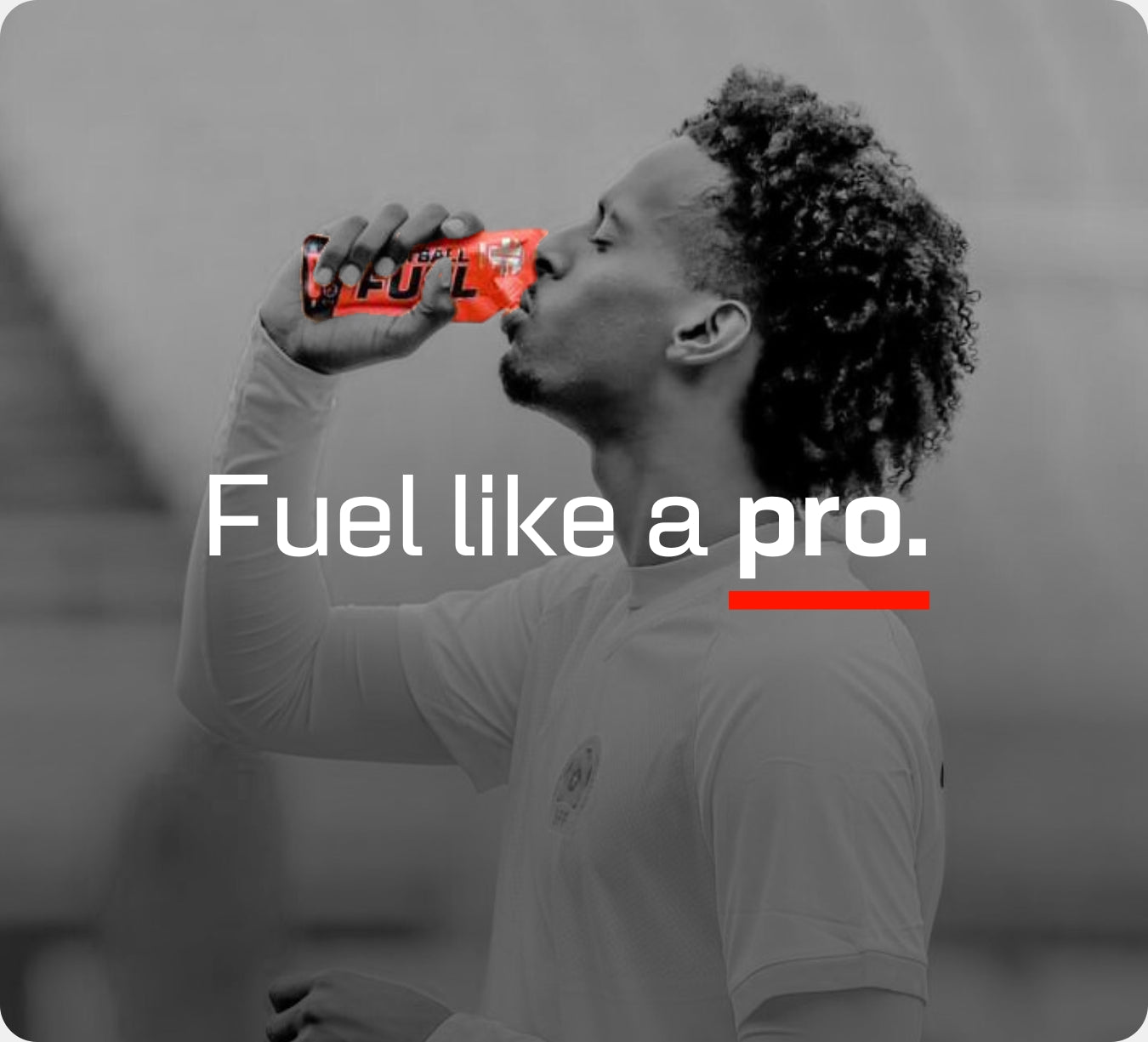THE FUEL
Think of your body as a fuel tank, and carbohydrates as the fuel source.
Carbohydrates are the body’s preferred energy source for football, where players perform at high-intesities for 90+ minutes. Once carbohydrates are consumed, they are converted into readily-available glycogen to power your box-to-box runs or repeated sprint efforts.
Therefore, it’s vital to get to kick off – or the start of a training session – with your glycogen stores as close to full as possible.
WHAT IS GLYCOGEN?
Glycogen is a form of stored carbohydrate found in muscles and the liver, serving as a readily accessible energy source for the body.
To put it in perspective, the muscles contain about 500g of glycogen, and the liver holds around 120g. To make this glycogen available, an individual would need to consume approximately 620g of carbohydrates, equating to nearly 8g per kg of body weight.
While complete glycogen fulfilment might not be essential for every training session, it becomes more crucial for intense and prolonged efforts, enhancing performance the closer one gets to optimal glycogen levels.
Research indicates that higher initial glycogen levels contribute to better endurance during maximum efforts.
GLYCOGEN DEPLETION
Glycogen depletion is a result of inadequate carbohydrate fuelling and is the main cause of fatigue in footballers. Studies show that 65% of footballers enter a match or training session with their fuel stores only half-full.
Symptoms of glycogen depletion include:
• "Heavy legs"
• Muscle cramping
• Slow off the mark
• Decreased muscular endurance
• Decreased acceleration
• Decreased top sprint speed
• Decreased power output
WHY USE ENERGY GELS?
Not all carbohydrates are created equal. It's essential that once you get to the pitch on a training or matchday, that your are consuming High-GI Carbohydrates.
Unlike rice or pasta (Low-GI), energy gels containing simple sugars are one of the most beneficial ways to fuelling performance prior to kick-off and re-fuelling at half-time.
Unlike sports drinks, energy gels are designed to provide a rapid and concentrated source of carbohydrates.
They are portable, easy to carry, and can be quickly consumed without the need for additional water to avoid bloating.
FOOTBALL FUEL conveniently delivers these vital carbohydrates at a rapid rate to power explosive movements, reduce fatigue & increase stamina on the pitch.
CONCLUSION
In conclusion, carbohydrates stand as the powerhouse for footballers, serving as the primary fuel that powers their dynamic movements, quick sprints, and overall performance.
Understanding the intricate role of carbohydrates and their optimal consumption is paramount for players wanting to unlock their full potential on the pitch.
References:
1. Burke LM, Hawley JA, Wong SH, Jeukendrup AE. Carbohydrates for training and competition. J Sports Sci. 2011;29 Suppl 1:S17-27. doi: 10.1080/02640414.2011.585473. Epub 2011 Jun 9. PMID: 21660838.
2. Steffl M, Kinkorova I, Kokstejn J, Petr M. Macronutrient Intake in Soccer Players-A Meta-Analysis. Nutrients. 2019 Jun 9;11(6):1305. doi: 10.3390/nu11061305. PMID: 31181835; PMCID: PMC6627126.
3. Hills SP, Russell M. Carbohydrates for Soccer: A Focus on Skilled Actions and Half-Time Practices. Nutrients. 2017 Dec 25;10(1):22. doi: 10.3390/nu10010022. PMID: 29295583; PMCID: PMC5793250.
4. Bangsbo J, Mohr M, Krustrup P. Physical and metabolic demands of training and match-play in the elite football player. J Sports Sci. 2006 Jul;24(7):665-74. doi: 10.1080/02640410500482529. PMID: 16766496.






